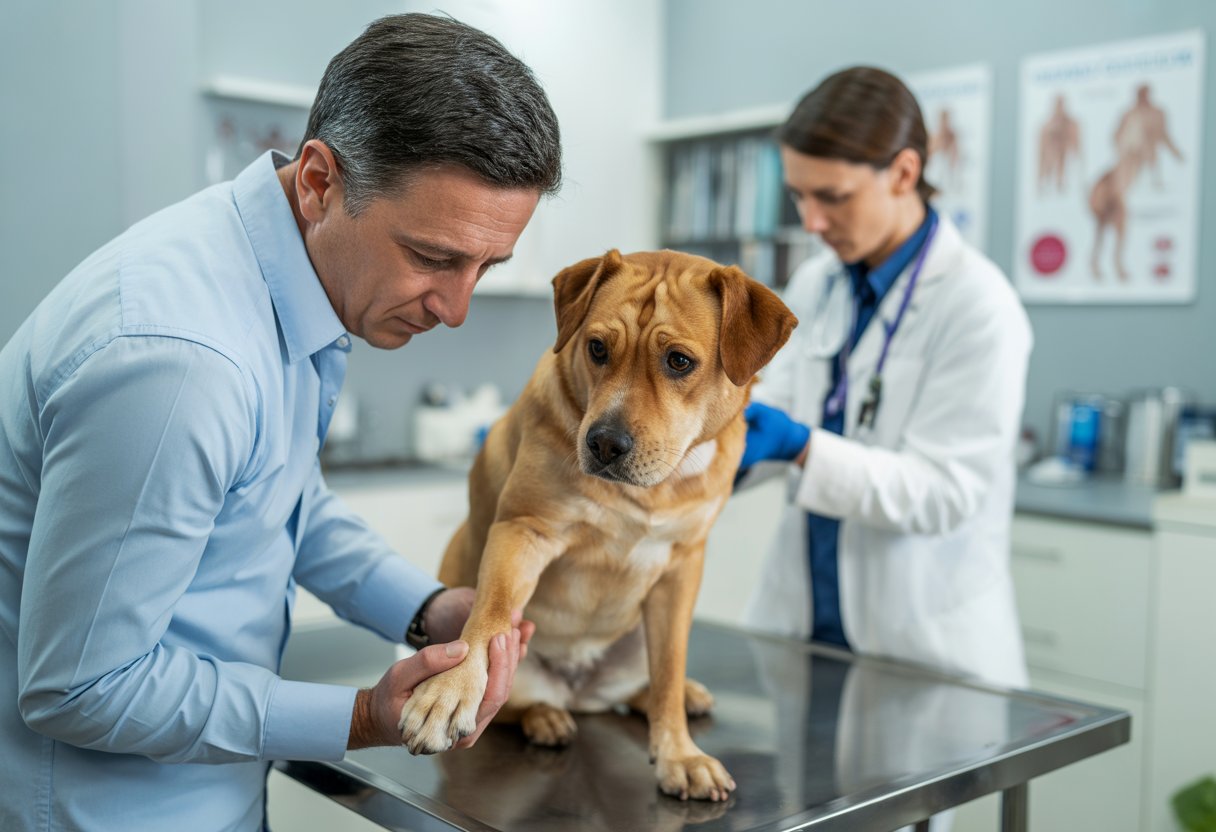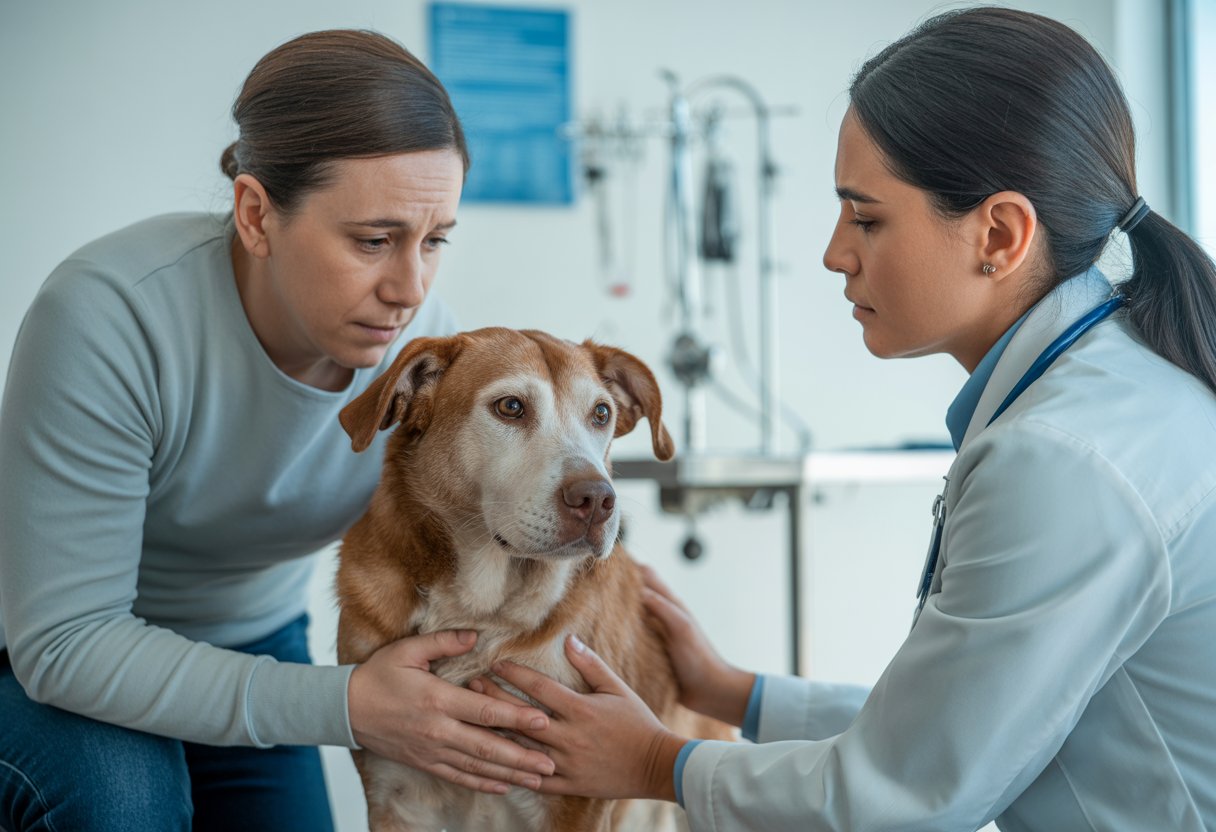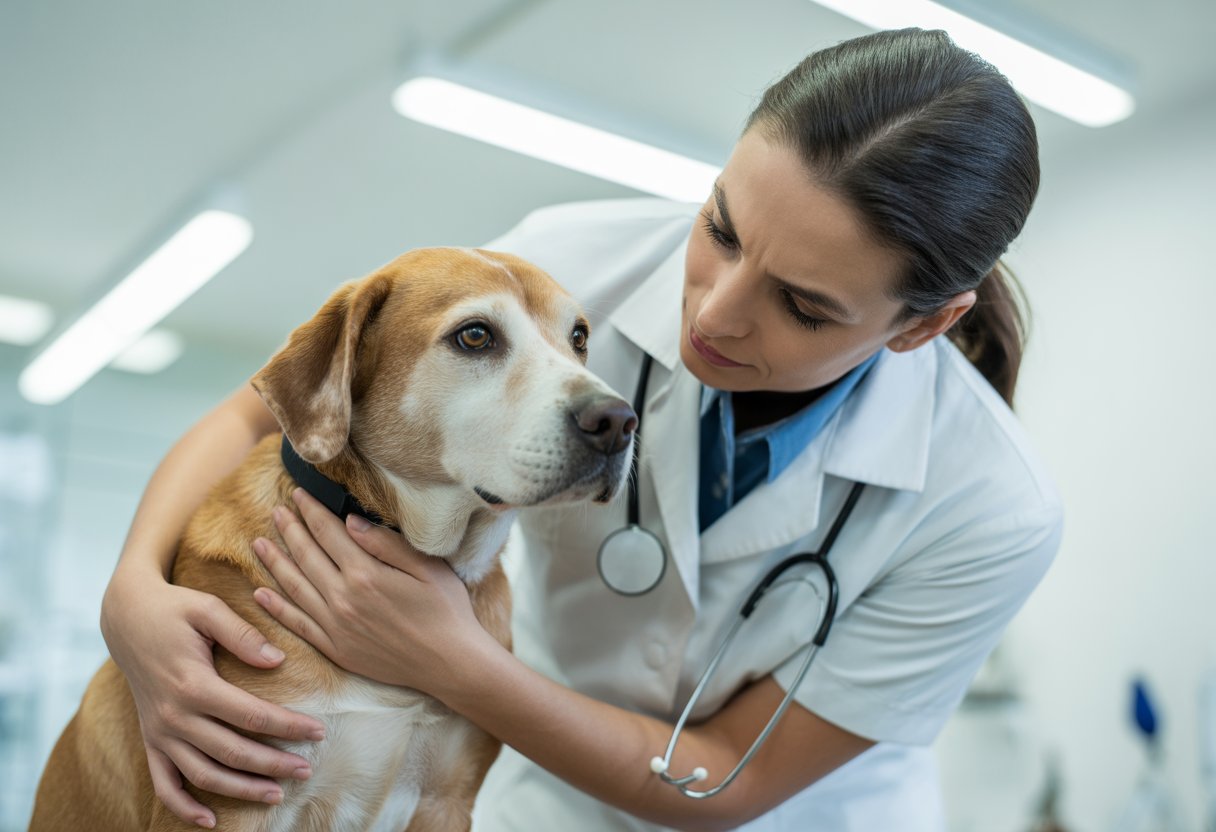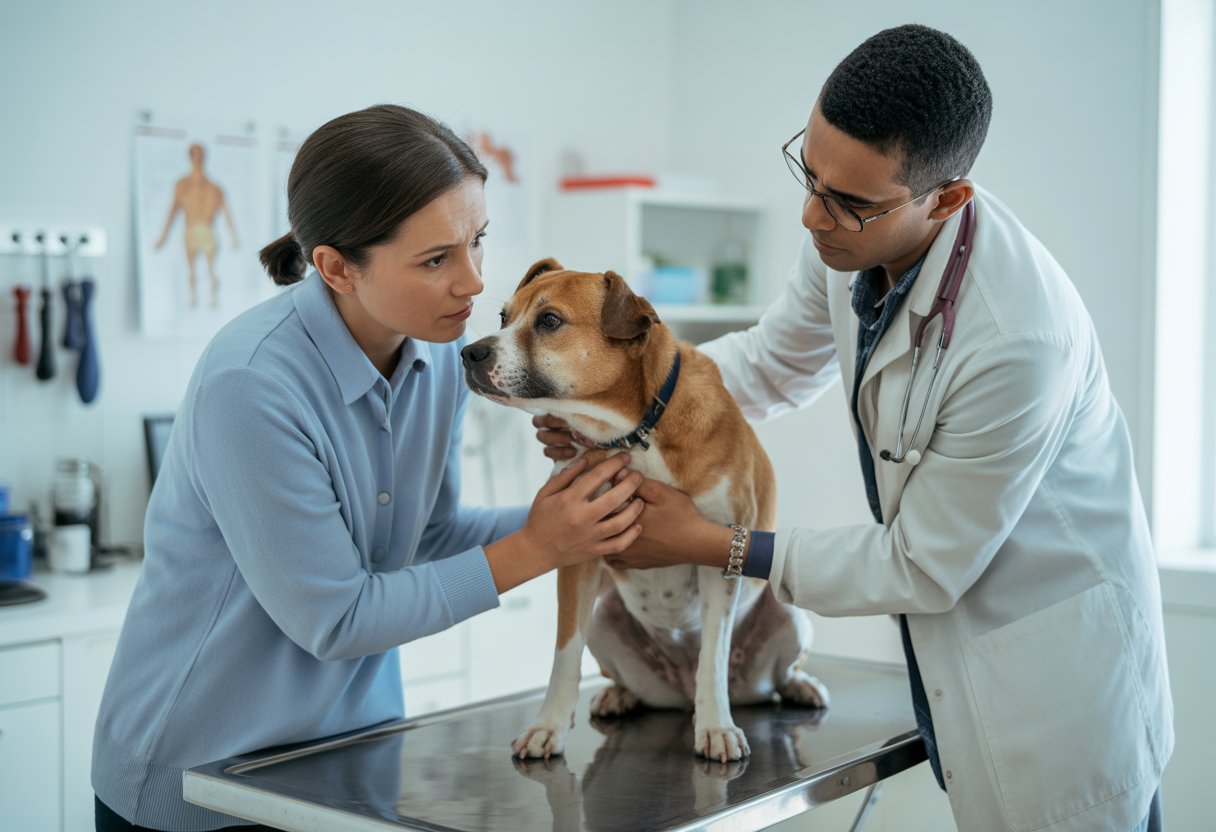Many dog owners don’t realize that everyday mistakes can put their pets at serious risk. Letting a dog eat toxic foods like chocolate, grapes, or foods with xylitol can quickly lead to a medical emergency and even the need for emergency surgery. Sometimes, pets also swallow objects like toys or socks, which can block the intestines and require urgent care.

Simple oversights, like leaving harmful items within reach or skipping close supervision, are among the most common mistakes pet owners make. Acting fast when signs of distress appear can save a dog’s life and prevent painful and expensive treatments. Understanding these dangers is the key to keeping pets safe and healthy.
Knowing what foods and items are dangerous, and learning what to do in case of an emergency, protects dogs from serious harm. Everyone wants their pet to be happy and safe at home, not facing emergency surgery at the vet.
The Dangerous Mistake That Could Send Your Dog to Emergency Surgery

Dogs often act before they think, putting them at risk for medical emergencies that need quick action. Swallowing foreign items and missing important health needs can be dangerous and lead to surgery.
How a Common Mistake Leads to Emergency Surgery
One of the most dangerous mistakes a dog can make is swallowing something it shouldn’t, like socks, toys, or bones. These objects can get stuck in the digestive tract, causing a blockage that prevents food and water from moving through normally. If untreated, this can quickly become life-threatening.
Some dogs also miss essential care, such as skipping vaccines or neglecting dental health. These problems increase the risks for infections or severe gum disease, but swallowing foreign objects remains one of the most direct causes for sudden surgery. Dogs don’t always show pain right away, making this issue harder to detect until it grows serious. Quick action is necessary when a pet shows signs of digestive trouble from ingesting objects, especially since some need emergency surgery for bowel obstructions.
Understanding the Risks: Bowel Obstructions and Foreign Objects
Bowel obstructions occur when something blocks part of the intestines. Common items that cause blockages include pieces of chew toys, rocks, thread, corn cobs, and even clothing. Dogs of any age or breed can be affected, but younger dogs and puppies tend to be more curious and at higher risk.
Symptoms include repeated vomiting, loss of appetite, bloating, and abdominal pain. If a sharp object is swallowed, it can also cause tears or infections inside the body. Sometimes, bacteria from dental disease or missing vaccines weaken the immune system, making recovery more difficult if surgery is needed. Having a barium study done by a vet helps locate the blockage.
Recognizing Early Signs of Trouble in Your Dog
It’s important to watch for early warning signs. Look for these changes:
- Nausea or drooling
- Gagging or trying to vomit
- Repeated vomiting (with or without food)
- Swelling or sensitivity in the belly
- Lack of interest in food or water
A dog may also act restless, not want to lay down, or seem depressed. Changes in bathroom habits—like struggling to poop or having diarrhea—are also warning signals. Knowing these signs helps owners act quickly.
Prompt care can prevent emergencies from becoming much worse. Monitoring your dog’s oral health and making sure vaccines are up to date can reduce the risks of complications if surgery ends up being necessary.
Immediate Steps to Take if You Suspect a Problem
Take these steps as soon as you notice a problem:
- Remove any remaining objects the dog could swallow again.
- Do not try to make your dog vomit unless a vet tells you it is safe. Some swallowed items can cause more harm if they come back up.
- Call your veterinarian or an animal emergency clinic right away. Be ready to describe what and when your dog swallowed the object.
- Gather your dog’s medical records, noting recent vaccines and dental treatments, as these help the vet decide on treatment.
Emergency surgery is sometimes the only way to remove severe blockages or correct damage. Delay increases the risk of infection or permanent injury to the intestines. Immediate veterinary care is always the safest choice if you suspect your dog swallowed something dangerous or is showing warning signs. Learn more about common emergency surgeries for dogs.
Prevention Strategies: Protecting Your Dog From Life-Threatening Errors

Simple changes in how owners care for their dogs can stop mistakes that lead to emergency surgery. Good feeding habits, safe play, regular vet visits, and daily health routines make a big difference in keeping dogs safe.
Proper Diet and Safe Feeding Habits
Feeding a dog the right way is one of the best ways to prevent choking, swelling, or digestive blockages. Dogs should only be given food that is safe for them. Avoid bones, rawhide, corn cobs, cooked fatty scraps, grapes, and chocolate. These can lead to sudden blockages or poisoning.
Small pieces of food, especially those that match the size of a dog’s windpipe, are a choking risk. Cut treats into small, manageable bits and watch your dog while they eat. Avoid giving table scraps since they sometimes contain hidden bones or spices that harm dogs.
Proper feeding schedules help too. Dogs are less likely to gulp large amounts of food at once if meals are split into two or three small portions each day. This lowers the risk of bloat—a condition where the stomach twists and may require immediate surgery. Make sure to read labels and stick to dog food brands that list real meat as the first ingredient.
Supervised Play and Chew Toy Safety
Dogs need chew toys for healthy teeth and to reduce boredom, but not every toy is safe. Small, easily swallowed toys and items that break into sharp pieces can cause blockages or mouth injuries.
Look for toys labeled as safe for your dog’s size and age. Avoid giving toys with detachable or small parts. Rope toys, for example, may unravel and cause gut issues if swallowed.
Supervise playtime. If a toy starts to break, throw it away. Always check toys daily for damage or wear. Chewing on sticks, rocks, or shoes should be discouraged, as these can splinter or cause choking. See more about chew toy safety and supervised play to protect pets.
The Role of Routine Veterinary Care
Routine exams help catch problems before they become emergencies. During checkups, veterinarians can spot early signs of dental disease, infections, or swelling in the belly. They will also give advice about safe feeding habits and evaluate if a dog’s toys or treats are a good match for their health.
Vaccinations protect against parvovirus and other diseases that might lead to sudden illness or the need for surgery. Annual blood work and physicals are important, especially as dogs age or if they have a history of swallowing unsafe objects.
Pet owners should always follow up with the vet at the first signs of vomiting, pain, or unusual behavior. Fast action can prevent surgery in many cases. Learn more on emergency care and early intervention.
Maintaining Overall Health: Grooming and Microchipping
Regular grooming is more than just keeping the fur clean—it helps prevent painful mats and infections that sometimes require medical intervention. Trim nails often to prevent breaks or ingrown nails. Clean ears as needed to avoid ear infections, and brush teeth to lower the risk of dental surgery.
Microchipping is a simple procedure that ensures a lost dog can be quickly returned home. A chip under the skin stores owner details in a safe, tamper-proof way. Microchipped dogs have a higher chance of being found if they escape or run off during a stressful event.
Focus on practicing daily grooming and making sure microchip details stay up-to-date. For more advice about grooming routines and microchipping benefits, dog owners can check detailed guides.
Frequently Asked Questions

Dogs may need surgery for several reasons, especially if they eat something harmful or show signs of a health emergency. It’s important to know what to feed them, how to spot problems, and how to care for them before and after surgery.
Why would a dog need emergency surgery?
Dogs often need emergency surgery if they swallow something sharp or toxic, have a stomach twist (bloat), or suffer from accidents like broken bones. Blockages in the intestines from toys, bones, or clothing are also common causes. Sometimes, severe infections or internal bleeding also require surgery right away.
What should you avoid feeding your dog to prevent medical emergencies?
Dogs should never eat chocolate, grapes, onions, or cooked bones. These can cause poisoning or dangerous blockages in their bodies. Even foods like fatty scraps or things made with xylitol can be deadly.
To learn more about common mistakes with dog health and diet, visit this WebMD dog health guide.
How can you recognize signs of shock in dogs?
A dog in shock may act weak, have pale gums, or breathe very fast. The pulse might feel weak, and the dog could collapse. Cold legs and a rapid heartbeat are also warning signs that a dog needs emergency help.
What are the common risks associated with surgery for dogs?
Surgery can lead to infection, bleeding, or problems from anesthesia. Sometimes stitches break, leading to wounds reopening. Blood clots and slower healing can also happen, especially in older dogs or those with other health problems.
You can find more information about surgery risks in these common dog surgery questions.
How can you prepare your pet for a safe surgical experience?
Keep your dog from eating for the recommended time before surgery, usually 8–12 hours. Make sure to tell the vet about any medicines your dog takes. Bring your dog’s medical records and ask about what will happen during and after surgery.
What are the post-surgery care instructions for dogs?
Dogs need a quiet place to rest after surgery. Keep the surgery site clean and dry, and prevent the dog from licking or chewing stitches. Watch for swelling, redness, or discharge, and follow all medicine instructions.
If you want more tips on how to care for your dog after the procedure, check this guide for dog surgery aftercare.
